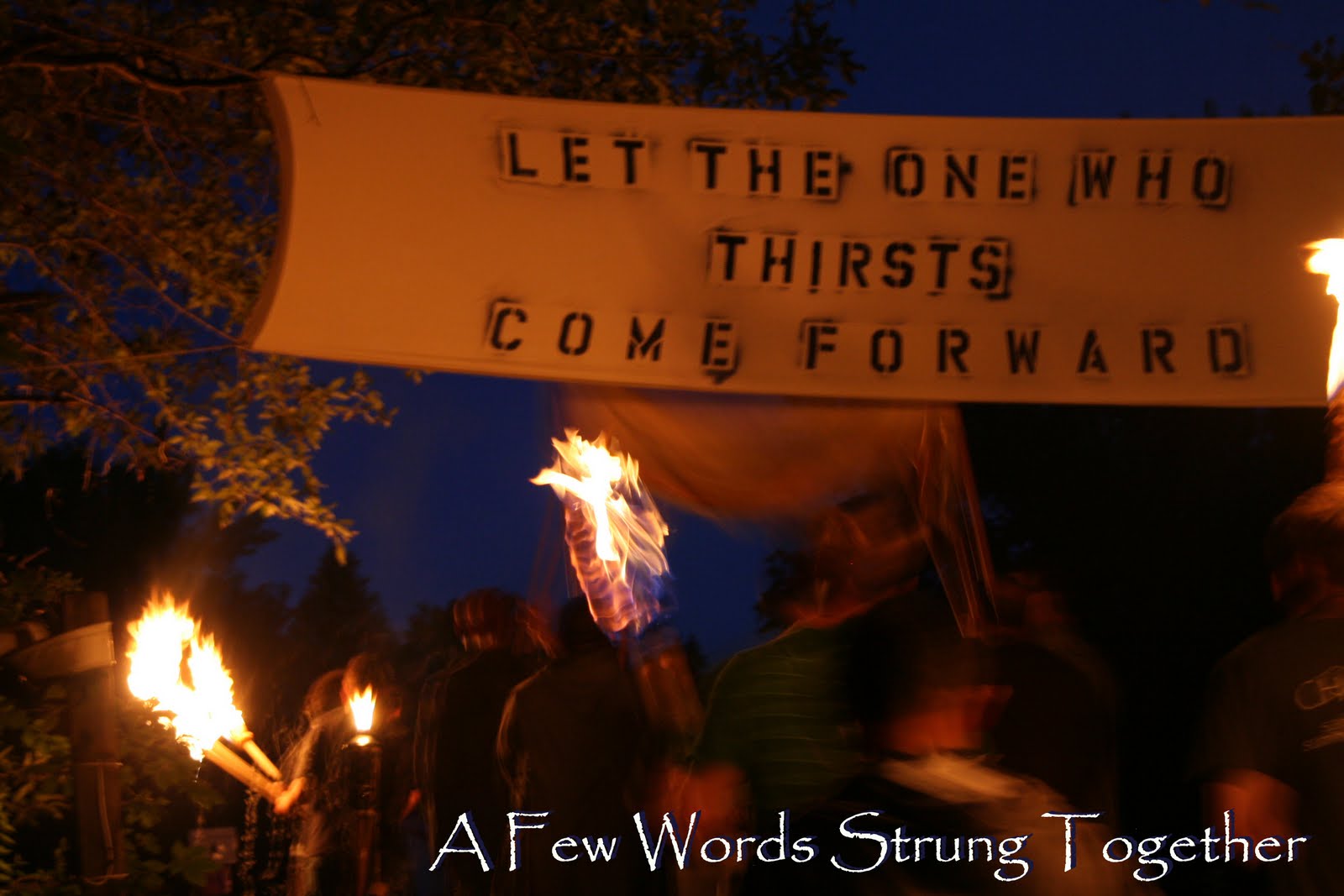This time I'm going to be seeking more sounding boards, more people to ask me questions and challenge me to really develop the world. If we haven't had a conversation about this endeavor yet and you'd like to chat, let me know! I'm eager to share.
The secondary challenge is that I feel driven to set out into the deep of a new genre, Dystopian Fiction. It's a genre that has been popping out of the woodwork into popular films and books lately and I find that I have an idea to add to the pot.
Once the idea took me I immediately ran to target and bought a three ring binder, loose leaf paper, and dividers to organize my thoughts. Then for the next three weeks I could be found scribbling ideas into the margins of my binder, proudly sporting a blue ink-stain on my pinky from dragging it through the freshly scripted words.
After all my preliminary thoughts were down on paper I began to challenge myself to do more, ask more questions and build the world more. This naturally led me on a journey through those who came before me toting the weight of creating a dystopian world and its problems. I'll include a list of the books I've read and brief notes below.
My next phase is something I'm taking from L.M. Montgomery's "Chronicles of Avonlea." So far I'm calling it "Experiences of the World," where I take on a major problem facing the society of the world and place several characters within that scenario to follow it through to its eminent conclusion in a series of short stories.
Still to come; rousing research into the science of today to glean ideas for a science of the future. Followed by another round of back stories and additions to the binder before I begin to transcribe plot points onto index cards to develop further. Quite a process. Can't wait!
My goal is to create a gripping tale of a journey from darkness into light.
What I've been Reading: Spoilers Included (think of it as reading part of my research)
 |
| Published 1949 George Orwell died in 1950 Written in the Midst and Published after WWII |
I'm in the midst of George Orwell's "1984" and must say that I like it best of all the books on this list, even though I'm just barely begun. Orwell has created a world where history no longer exists insofar as no one can be certain that anything is true. Society is set up in such a way that a fact isn't a fact at all because it can always be rewritten to suit the Party's desires for the time. All this driven by "Big Brother" and the in-home surveillance from which Winston finds a rare and solitary respite to begin writing a journal. This act alone is tyranny against the Party not to mention his deplorable preference to be alone and solitary. Can't wait to find out what happens next.
 |
| Published 1932 Written between WWI and WWII |
A close second to my love for "1984" is Aldous Huxley's "Brave New World." Where to even begin, Huxley's rousing writing-style often left my head spinning and my heart longing to read more. This is really the story of a man who managed to grow up with some sort of watered down morality amid a hedonistic society that has done away with monogamy and natural childbirth in favor of babies born in tubes, conditioned for a predefined class and set of characteristics. The thing about John the Savage is that he was born naturally of a Beta Minus and once discovered is toted around as a novelty until he succumbs to his passions forsaking his morality and, in shame, hangs himself. Huxley had a skillful style, which gave the reader the idea of a new scientific advancement, without going too deeply into the details of how it worked.
 |
| Published 1953 Post WWII |
 |
| Published 1993 |
 |
| Published 2008 |
 |
| Published 2011 |
What is Dystopian Fiction?:
- Dystopia: an imaginary place where people lead dehumanized and often fearful lives. (Merriam Webster)
- Dystopian Fiction: A genre of literature, which features a dehumanized and fearful world focusing on a specific issue. Often, dystopian fiction is a satire of what is seen in the current times.
Characteristics of Dystopian Fiction:
- Propaganda and fear portray a dystopian world as a utopia.
- Dehumanized world for a presented greater good and for the sake of advancement. Often this advancement is scientific.
- Free-thought is discouraged and enforced by a fear of persecution.
- Often futuristic, but with satirical veins that could be something readers face in their own lives.
- Oppression and high surveillance.
- A central ruling power, which is feared and respected.
